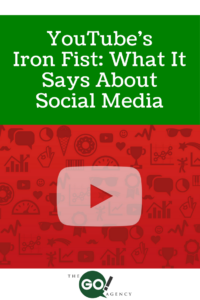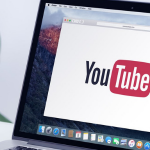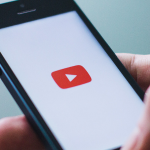Ever since people realized that they could say whatever they want on the internet, there have been people trying to figure out rules, restrictions, and ultimately, censoring. Obviously, once “censor” starts to be thrown around, all content creators’ ears perk up. Many creative individuals, whether they are in a business role or not, have found a home on the wild wild web. Whenever a new law or chunk of fine print puts this freedom into question, people become restless. Right now, YouTube has started a new content-related quarrel.
- Advertising is (still) king. If ads were pointless, this conflict would never happen because there would be no professional YouTubers. In fact, YouTube itself would most likely be a sliver of its current size if there were no revenue pumping through the ad channels. Social media marketers – take note! If you ever wonder if your Facebook, Twitter, Instagram, and even YouTube ads matter, think about this impending struggle between YouTube and YouTuber, which is bound to escalate if this censoring – or “stern enforcement of policies”, if you don’t like that term – continues.
- Content creators underestimate platforms. As professionals that utilize the world’s most popular sites on a daily basis, social media professionals may view excessive rules and regulations as obstacles rather than guidelines. That being said, we need to realize that there are real rules with real reciprocations for a variety of reasons and we need to follow them. So, keep your content classy and professional, don’t spam or scam followers in any way, and try to avoid copyrighted material that you don’t own.
- Platforms underestimate content creators. There was a time when YouTube was the only option. There were no other video-hosting websites, just as there were very few social media sites. Now, things are different. If DeFranco and other YouTube stars feel so inclined, they could pull out of YouTube and focus on Instagram, Snapchat, Facebook, Twitter, and many other sites. This would not go well for Google. I’m not saying that platforms should cater to every whim of the user, or vice versa, but platforms need to know they are actually replaceable by the next best thing.
It will be interesting to see just what happens in this swelling conflict. YouTube may have to loosen the leash. Vloggers may have to dial down the content (which is unlikely to happen). Either way, the internet, as always, is alive and well and full of changes, which professionals need to be ready to adapt to.






